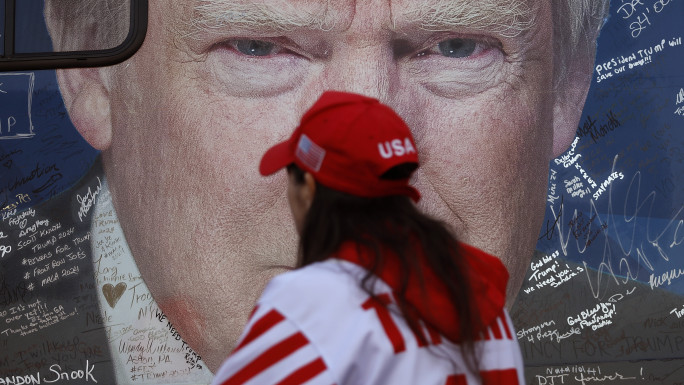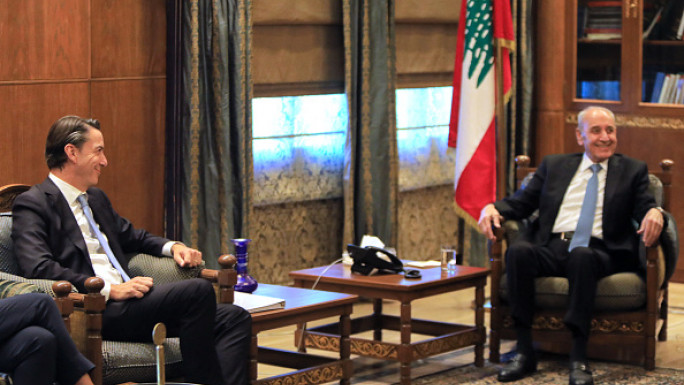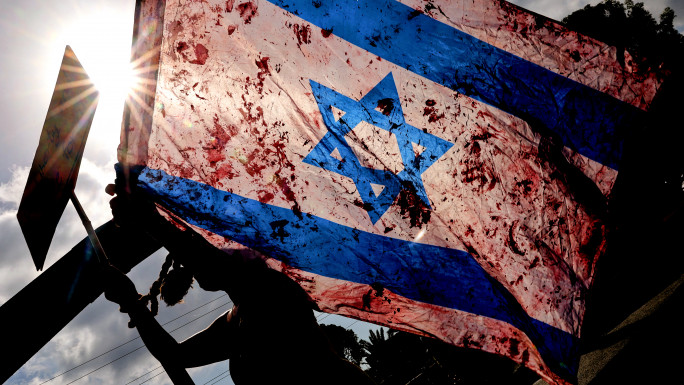
To resolve the GCC crisis, keep Trump away
Much has happened in the intervening period. Saudi Arabia, the United Arab Emirates, Bahrain, Egypt and others severed diplomatic relations with Qatar and imposed a blockade on the peninsular nation. The bloc issued a list of unachievable demands that threatened to strip Doha of its independence and sovereignty.
In fact, the crisis has pushed the Gulf Cooperation Council (GCC) to a dangerous point of no return and threatened the future of its union.
A divided Trump administration
In the wake of these demands, many states echoed calls for GCC unity and a peaceful resolution to the crisis. But the Trump administration, at least in the first weeks, showed divided opinions between the White House and the Departments of State and Defense.
In his earlier forays, President Donald Trump gloated that it was his pressure that resulted in the Saudi bloc's severing of relations with Qatar. It was clear that he sided with the anti-Qatar allies instead of taking a neutral position and emphasising GCC commonalities.
Throughout June, he referred repeatedly to Qatar's purported support of terrorism. In mid-July, the president declared in an interview that if the United States wanted to move the Qatar-based al-Udeid Air Base, it would find 10 countries willing to host it at their expense.
 |
Tillerson's support of Kuwait's reconciliation efforts is welcome and should continue |  |
By that time, it had become obvious from UAE's Ambassador to the United States, Yousef al-Otaiba's hacked email that his country was lobbying to host the base.
Trump's position was anathema to the positions of Secretaries of State Rex Tillerson, and of Defense, James Mattis. Both committed their efforts to bridging GCC differences. Tillerson offered his services as a peacemaker and repeatedly lauded Qatar's efforts against terrorism.
Before her resignation, the US Ambassador to Doha, Dana Shell Smith, tweeted about Qatar's progress in combatting terrorism, and other American political and military officials highlighted Qatar's positive stance on the issue.
| Read more: Qatar's resilient economy unfazed by harsh sanctions: analysts | |
US Navy ships visited Qatar and conducted training exercises with the Qatari Emiri Navy. Secretary Mattis signed a deal to sell Qatar $12 billion worth of American F-15 warplanes.
Both these military moves, and Tillerson's efforts are evidence that America's diplomatic and security institutions are opposed to President Trump's position regarding the crisis. In fact, many in American officialdom outside the White House dread the possibility that he might tweet a whimsical opinion about the continuing stalemate.
It's Tillerson's portfolio
It is essential that Secretary of State Tillerson insist on his independence in addressing the stalemated Gulf crisis. Only the State Department can provide the institutional depth and experience the situation requires.
Tillerson's support of Kuwait's reconciliation efforts is welcome and should continue. His insistence since the early days of the crisis on the importance of GCC unity and common purpose, and his shuttle diplomacy are concrete examples of his commitment to finding a resolution. As such, he deserves encouragement as his White House detractors try to subvert his efforts.
 |
President Trump's first six months in office have shown that US international diplomacy should not be entrusted to the White House |  |
The recent appointment of Deputy Assistant Secretary for Arabian Gulf Affairs Timothy Linderking and retired General Anthony Zinni as envoys to the Gulf is a welcome development. As announced, their mission will be to maintain American representation and pressure on the ground.
It is thus imperative that the Secretary increase the prestige and number of personnel of his department's Bureau of Near East Affairs. The announcement that veteran diplomat David Satterfield will be Acting Assistant Secretary of State for the region is a step in the right direction.
Keep Trump away
President Trump's first six months in office have shown that US international diplomacy should not be entrusted to the White House. In fact, any time the president has weighed in on an international issue, he has made it worse.
The examples are numerous. The president has threatened NATO unity and common defense, and withdrew from the Paris Climate Accord. He has caused major rifts with important allies such as Germany, Mexico, Australia and others.
 |
It is essential that American diplomacy keep President Trump away from the Gulf |  |
Trump continues to praise Russian President Vladimir Putin despite Russia's behaviour in Ukraine, Europe, and Syria and its interference in the American election. More recently, he worsened a standoff with a nuclear North Korea and threatened back-channel diplomacy to resolve that crisis.
In the ongoing Gulf crisis, his detrimental intervention has jeopardised GCC unity and American national security interests. In these matters, his ignorance and bravado should not be allowed to supersede the interests of the State Department.
Besides working to affirm the importance of GCC unity and common cause, it is essential that American diplomacy keep President Trump away from the Gulf. More importantly, it is imperative that those in the region who believe in him, stop assuming that he knows what he is doing.
Imad K. Harb is the Director of Research and Analysis at Arab Center Washington DC.
Opinions expressed in this article remain those of the author and do not necessarily represent those of The New Arab





 Follow the Middle East's top stories in English at The New Arab on Google News
Follow the Middle East's top stories in English at The New Arab on Google News


